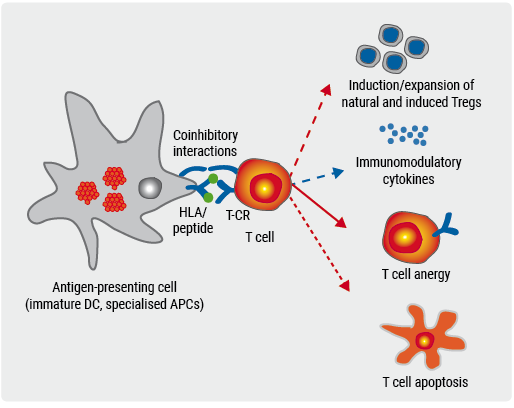Early identification of suboptimal response could prevent irreversible disability progression by timely switching from a first-line to a more potent second-line disease-modifying therapy (DMT) [2]. With this in mind, Dr Camille Sabathé (French Institute of Health and Medical Research, France) and colleagues developed a dynamic scoring system to aid the early decision of switching therapies. They had at their disposal a French cohort of 12,823 adult RRMS patients who had started a first-line treatment between 2008 and 2018. Patients who switched to a second-line treatment because of inefficacy were compared with patients remaining on first-line treatment, by use of a 1:1 emulated clinical trial (ECT) based on time-dependent propensity scores. The main outcome measure was time to first relapse after matching.
The cohort was divided at random into a learning sample (n=8,549) and a validation sample (n=4,274). To compute the propensity scores and to match patients, in a first ECT (n=2,028) a frailty Cox model was set up that could predict the time to relapse in the patients who switched (n=1,014) versus those who did not (n=1,014). The switch benefit was found to be higher for patients who:
- were younger at disease onset;
- had a low Expanded Disability Status Scale (EDSS) score (≤5) at first-line treatment initiation;
- had ≥1 relapse under first-line treatment;
- had ≥1 gadolinium-enhancing T1 lesion on MRI under first-line treatment.
Based on these outcomes, the individual hazard ratio (iHR) of relapse in case of switch versus waiting was established. Patients with iHR ≤0.69 significantly benefited from a switch, patients with iHR >0.69 did not. This scoring system was then applied on a first validation ECT of 348 patients with iHR ≤0.69. Five-year relapse-free survival was 0.14 (95% CI 0.09–0.22) in non-switchers and 0.40 (95% CI 0.32–0.51) in switchers. In a second validation ECT of 518 patients with iHR >0.69, 5-year relapse-free survival was 0.37 (95% CI 0.30–0.46) and 0.44 (95% CI 0.37–0.52), respectively, a non-significant difference.
- Sabathé C, et al. Improving the decision to switch from first to second-line therapy in MS: a dynamic scoring system. OP035, ECTRIMS 2021 Virtual Congress, 13–15 October.
- Ziemssen T, et al. Mult Scler Relat Disord. 2015;4(5):460–469.
Copyright ©2021 Medicom Medical Publishers
Posted on
Previous Article
« Long-term suppression of MRI disease activity with ocrelizumab Next Article
Ublituximab meets primary endpoint for relapsing MS »
« Long-term suppression of MRI disease activity with ocrelizumab Next Article
Ublituximab meets primary endpoint for relapsing MS »
Table of Contents: ECTRIMS 2021
Featured articles
Preliminary data shows positive results of ATA188 for progressive MS
COVID-19
MS patients at risk of hampered immune response after vaccination
Immunotherapy in MS does not influence COVID-19 severity and mortality
Anti-CD20 antibodies associated with worse COVID-19 outcomes
ECTRIMS-EAN consensus on vaccination in MS patients
Experimental Treatments
The role of astrocyte phenotypes in acute MS lesions
Promising results of intrathecal MSC-NTF cells in progressive MS
Preliminary data shows positive results of ATA188 for progressive MS
Evobrutinib reduces relapses and MRI lesion activity
Primary endpoint of opicinumab for relapsing MS not met in AFFINITY trial
Elezanumab did not outperform placebo in progressive and relapsing MS
Ibudilast reduced retinal atrophy in primary progressive MS
Treatment Trials and Strategies
ECTRIMS/EAN Clinical Guidelines on MS treatment: an update
Rituximab most effective initial MS therapy in Swedish real-world study
Ublituximab meets primary endpoint for relapsing MS
Dynamic scoring system aids decision to switch MS therapies early
Long-term suppression of MRI disease activity with ocrelizumab
Stopping DMT: when or if at all?
Biomarkers
Early predictors of disability progression in paediatric-onset MS
High-sensitive biomarker detection in MS via novel ELISA assay
Cortical lesions predict cognitive impairment 20 years after MS diagnosis
Applicability of sNfL measurement in clinical practice
MRI more sensitive for disease activity than relapses in SPMS
Imaging
Changes in GABA-receptor binding among cognitively impaired MS patients
T2 lesions independently predict early conversion to SPMS
Natural killer-like CD8+ T cells as a reservoir of clonal cells related to MS activity
Neuromyelitis Optica Spectrum Disorder (NMOSD)
Eculizumab, satralizumab, or inebilizumab for NMOSD?
Long-term efficacy of satralizumab for NMOSD
Long-term efficacy data: inebilizumab for NMOSD
Progressive MS
Charcot Award 2021: Progressive MS, a personal perspective
Top score poster: Meta-analysis on the effect of DMTs
Cortical lesions predict disease progression and disability accumulation
Ocrelizumab shows long-term benefits in primary progressive MS
Other
WNT9B-gene variant associated with doubled relapse risk in MS
Melatonin associated with improved sleep quality in MS patients
“Expanded Disability Status Scale 0 is not normal”
Personality trait alterations in MS patients
Related Articles
September 7, 2023
Retinal layer thickness predicts disability accumulation in early RMS

November 8, 2019
Late-breaking: Myelin-peptide coupled red blood cells

© 2024 Medicom Medical Publishers. All rights reserved. Terms and Conditions | Privacy Policy

